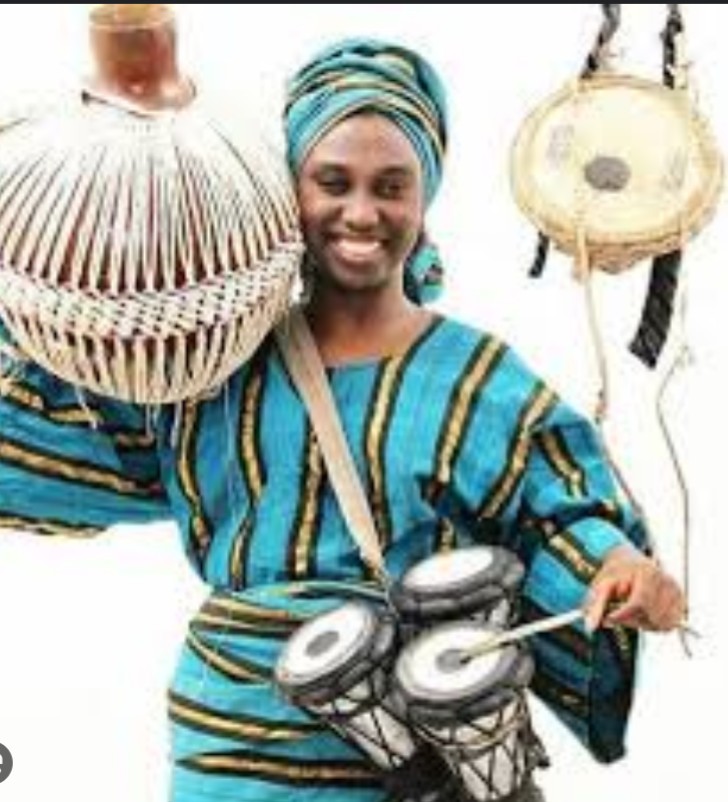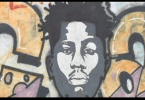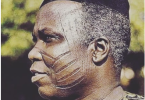Nigerian music as it is known now, is a product of fusions and experiments of both western (European/American) music forms and traditional music. And Nigeria’s diverse musical genres stem from the diversity of their origins: its over 300 (thereabout) ethnic tribes.
Traditional folk music still exists in Nigeria till now; which in its many cultural versions, were enjoyed for centuries before the colonial era. Historians point out that much of the diverse forms of traditional Nigerian music of pre-independence era did not survive in their original forms. Rather, they have been ‘westernized’ because of British and American influence.
With so many educated Nigerian folks around, westernization of Nigeria’s diverse music genres became necessary to capture and retain their interest. And more so because many of these modern-day Nigerian music artists have undergone western education, and have become exposed to the outside world. But they still retain the use of traditional instruments, some native language (likely diluted with English/Pidgin), and sometimes native world-view and wisdom.
Common Features of Traditional Nigerian Folk Music
In ancient times, each ethnic group in Nigeria developed its own unique instruments, song styles and usage. However, there were two important features of traditional Nigerian folk music.
To begin with, traditional folk music in Nigeria (and generally across Africa) are mostly designed to serve specific functions. That means generally speaking, music in Africa is sung to entertain listeners on special occasions and events. These include weddings, traditional festivals, child naming, funerals, and birthdays (of modern Nigeria, not ancient times). Music rendered to entertain individuals are not common; but it does occur. The functions also vary according to each ethnic tribe, and the events that are important to each of them.
Music also accompanies children’s folktales and playtime; as well as farming, fishing, trading, and other work activities. Work songs are often sung (commonly with musical instruments) to encourage men or women while they work in groups. This could be on farms, rivers, during cooking or housekeeping (to mention the most common ones).
Secondly, the call-and-response chorus style of music is very common in Nigeria. This is regardless of whether the music is the traditional type, or modern hybrid forms. A lead singer renders lyrics, with the chorus responding interchangeably. The instruments are typically played to match or rhyme with the lead singer’s or chorus’s words.
And not surprisingly, Nigeria’s diverse music genres often employ a harmonious ensemble of both modern instruments, and local instruments (indigenous to the tribe represented). Common examples of these local musical instruments include:
Talking drum (and other local drums), shekere (gourd with beads), local flutes, local trumpet (goge), gongs, tambourine, and triangles.
Nigeria’s Diverse Music Genres: The Most Popular Ones and Their Features
A quick mention of the most internationally recognized ones out of Nigeria’s musical genres presents the following:
Juju, Fuji, Afrobeat, Afrobeats, Nigerian Gospel, Waka, Apala, Rara, Were, Oghene, Igbo Highlife, Igbo Rap, Edo Highlife, Ijaw Highlife, Aurrebbe, Afro-pop, Ikwerre Highlife, and Owerri Bongo. The list is not by any means exhaustive.
Juju
Juju is an danceable fusion of Yoruba rhythms and western musical instruments – which prominently features the electric guitar and keyboard. It originated in southwest Nigeria sometime in the 1940s, courtesy of the Yoruba musician Tunde King. It is also typically renders christian-themed songs, and native proverbs.
The likes of King Sunny Ade, Ebenezer Obey, and Segun Adewale made Juju popular beyond the African continent in the 1960s and 1970s. During the latter period, Juju became infused with elements of Highlife and funk music.
Fuji
Fuji music, which also originated in southwest Nigeria, has its roots in traditional Islamic music. It originated sometime in the 1960s, and exhibits both Yoruba and Arabic lyrics. It became common for Fuji music to be rendered at Islamic events such as religious gatherings, weddings and funerals.
However, modern-day Fuji has gone viral in the streets of southwest Nigeria, and is now enjoyed by many Yoruba and non-Yoruba indigenes. Just like Fuji, Juju has evolved to become one of the signature musical genres associated with the Yorubas of southwest Nigeria.
Highlife
Highlife music is a danceable, lively genre that emerged in the 1920s across West Africa. Strongly influenced by European jazz, it was a combination of African rhythms and western instruments – particularly the guitar and trumpet. It started out as entertainment song for the upper and upper-middle class elites of colonial West African countries (especially in Ghana where it actually started). Over time, it spread across West Africa.
Highlife has become one of the foundations of later musical genres that typicalized Nigerian music.
Afro-pop
Afro-pop (or Nigerian pop if you wish) emerged in the 1990s as a Nigerian adaptation of American hip-hop and rap music. It quickly got the attention of Nigerian youths, who had become so used to listening to western music on popular mass media before then. It was an attempt to create a ‘proudly Nigerian’ version of western music, and thus encourage creativity amongst Nigerian youths.
Over time, Afro-pop succeeded in reinventing western music to incorporate local instruments, native languages, Pidgin English and the Nigerian experience. The likes of Tuface, D’banj, Wande Coal and scores of others promoted Afro-pop with zeal. It became particularly popular across Nigeria and to a limited extent, amongst neighbouring African countries.
Afrobeat
Afrobeat is the brainchild of legendary Nigerian musician and activist, late Fela Anikulapo-Kuti. It was a complex but energizing fusion of jazz, African rhythms, highlife and funk music; with a strong background chorus.
Afrobeat became extremely popular across Nigeria and in the diaspora for two reasons. Firstly, the Afrobeat genre became a voice of conscience and criticism. And it quickly echoed both the pan-African and international human rights movement that was extremely popular at that time. It spoke at once to the Nigerian masses to wake up and reason; and to a Nigerian government that seemed derelict in its national duties.
Secondly, it employed the use of Pidgin English – a fast-rising and common lingua on the streets of Southern Nigeria. Pidgin eventually succeeded in uniting people of diverse cultures and languages across Nigeria, from the North to South. Today, Nigerian Pidgin is internationally recognized as well.
Afrobeats
The Afrobeats genre is an adaptation of Fela’s original Afrobeat. Afrobeats has elements of highlife, dancehall, reggae, and modern hip-hop fused into the Afrobeat; often with strong hints of traditional rhythms and instruments. It often employs a mixture of native language, proper English, and Pidgin English (with a good dose of slangs).
Afrobeats has become extremely popular worldwide; and its ambassadors are now internationally recognized. Thanks to their collaboration with international music artistes, and the help of digital musical streaming platforms. The likes of Burna Boy, Rema, Davido, Wizkid, Tiwa Savage and a host of others are listed amongst the global ambassadors of Afrobeats.
Gospel Music
Gospel Music is an increasingly popular musical genre in Nigeria. It is strongly christian worship themed, and so is very popular amongst Christians. Nigerian gospel music is often a fusion of both local and western languages and instruments. However, there are those rendered in purely local, or purely English language.







